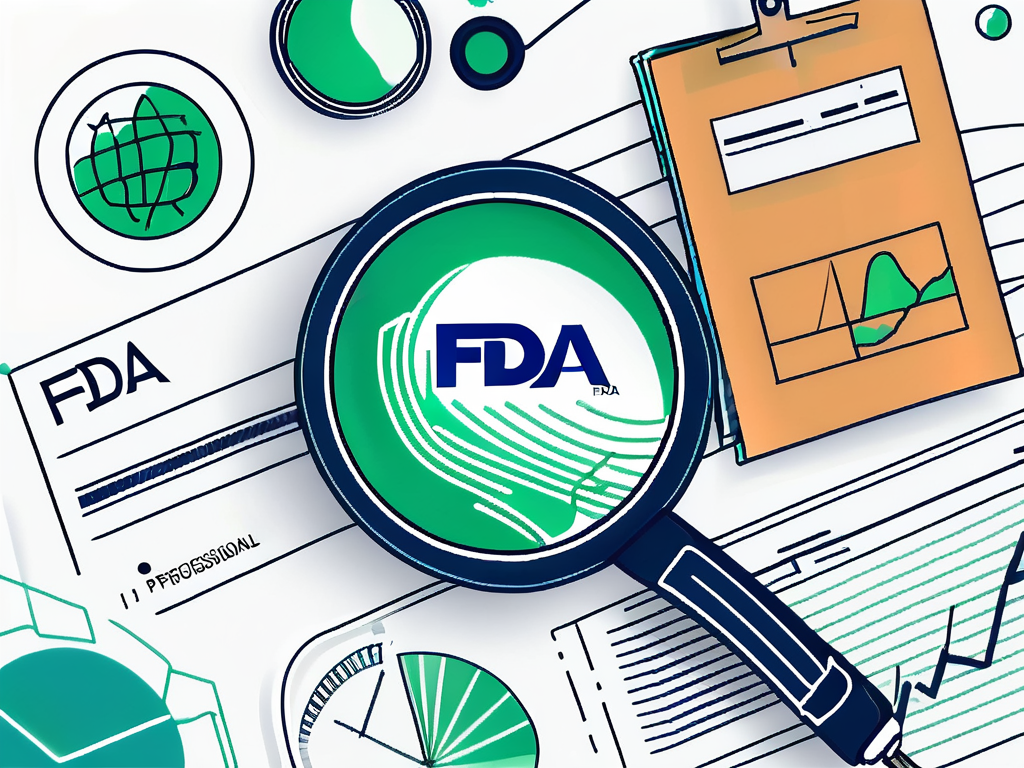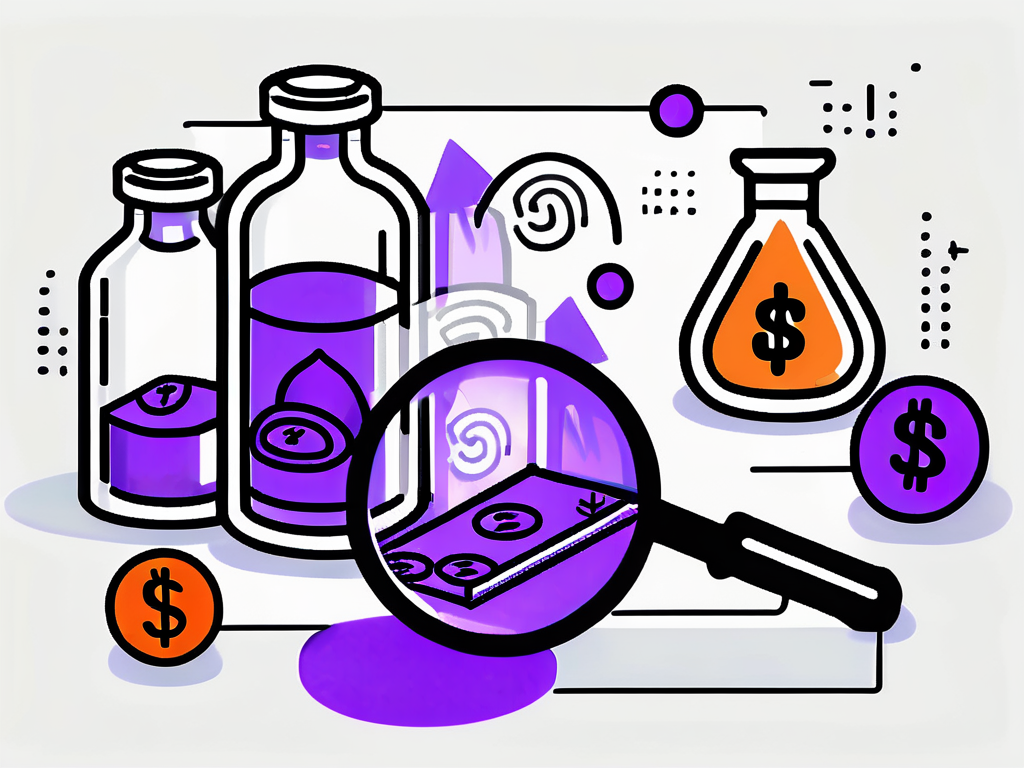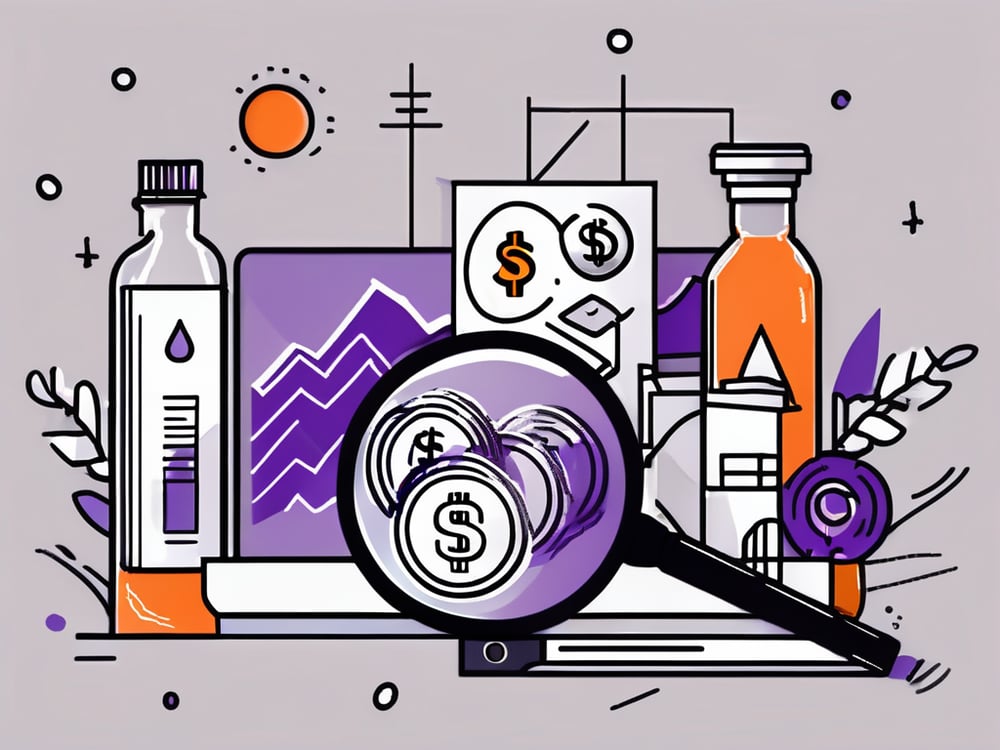The cost of FDA approval for your products can vary significantly depending on various factors. From preclinical testing to clinical trial expenses, there are several elements that contribute to the overall cost.
In order to find out the exact cost of obtaining FDA approval for your products, you’ll need to assess several things, and we’re here to guide you through this journey.
In this article, we will take a closer look at:
- Breaking down FDA approval costs
- Examining the FDA approval process
- Factors that influence the costs
- Strategies to reduce approval expenses
- Financial implications of FDA approval
Table of Contents
ToggleThe Cost of Getting FDA Approval for Your Products Explained
The cost of obtaining FDA approval can range from $20,000 to $30,000 for less complex products. Businesses that rely on 3PL services in the USA must also consider additional financial factors in logistics, such as warehousing, shipping, and compliance costs, which can significantly impact overall expenses.
The first step towards understanding the cost of FDA approval is to familiarize yourself with the approval process itself. The FDA plays a vital role in ensuring the safety and efficacy of products before they reach the market.
This process involves multiple steps, each designed to evaluate various aspects of the product. Let’s delve deeper into the role of the FDA in product approval and explore the steps involved in the FDA approval process.

The Role of the FDA in Product Approval
The FDA is responsible for regulating a wide range of products, including drugs, medical devices, biologics, and more. Their mission is to protect public health by ensuring the safety and effectiveness of these products.
Before a product can be marketed in the United States, it must undergo FDA approval. This approval process involves rigorous testing and evaluation to determine whether the product meets the necessary standards for safety and efficacy.
Ensuring the safety and effectiveness of products is no small task. The FDA employs a team of experts, including scientists, physicians, and statisticians, who review the data and evidence provided by manufacturers.
They analyze the risks and benefits associated with the product, considering factors such as its intended use, potential side effects, and the population it is intended to benefit. This comprehensive evaluation helps the FDA make informed decisions about product approval.
Steps Involved in the FDA Approval Process
The FDA approval process consists of several key steps, which can vary depending on the type of product. Typically, it involves preclinical testing, clinical trials, and submitting applications for review. Let’s take a closer look at each of these steps:
- Preclinical Testing: Before a product can be tested on humans, it must undergo extensive preclinical testing. This involves laboratory and animal testing to assess the product’s safety and potential efficacy.
- Clinical Trials: Once preclinical testing is complete, the product moves into the clinical trial phase. This phase involves testing the product on human subjects to further evaluate its safety and efficacy. Clinical trials can be a lengthy and costly process, as they require extensive data collection and analysis.
- Application and Review: After successful completion of clinical trials, the next step is to submit an application for FDA review. This application includes detailed information about the product, its manufacturing process, clinical trial results, and more. The FDA then conducts a thorough review of the application to determine whether the product meets the necessary standards for approval.
Once the application is submitted, the FDA review process begins. This process involves a team of reviewers who carefully examine the data and information provided.
They assess the product’s safety, effectiveness, and quality, taking into account any potential risks and benefits. The review may also involve consultations with external experts to ensure a comprehensive evaluation.
During the review process, the FDA may request additional information or clarification from the manufacturer. This back-and-forth communication helps ensure that all necessary data and evidence are thoroughly evaluated.
The FDA strives to maintain transparency throughout the process, providing regular updates to the manufacturer regarding the status of the review.
Breaking Down the Costs of FDA Approval
Now that we have a better understanding of the FDA approval process, let’s dive into the costs involved. Obtaining FDA approval can be a significant financial investment for companies, especially for those in the pharmaceutical and medical device industries. For businesses managing regulated shipments, healthcare fulfillment services can help streamline compliance and storage requirements.
The costs can be categorized into three main areas:
- preclinical testing costs
- clinical trial expenses
- application and review fees
Let’s explore each of these in detail.
Preclinical Testing Costs
Preclinical testing is a critical component of the FDA approval process, and it comes with its own set of expenses. From laboratory testing to animal studies, companies must allocate resources towards gathering data on the product’s safety and potential efficacy.
These costs include conducting studies, hiring skilled researchers, and purchasing necessary equipment and supplies. The complexity and scale of preclinical testing can greatly impact the overall budget for FDA approval.
For example, in the pharmaceutical industry, preclinical testing often involves conducting in vitro experiments to assess the drug’s interactions with cells and tissues. This requires specialized equipment and reagents, as well as skilled scientists who can accurately interpret the results.
Additionally, animal studies are conducted to evaluate the drug’s safety and effectiveness in living organisms. These studies involve housing and caring for the animals, as well as monitoring their health throughout the experiment.
Moreover, companies may need to outsource certain aspects of preclinical testing to specialized contract research organizations (CROs). These organizations have the expertise and facilities to conduct specific tests, such as toxicology studies, which can be costly.
By partnering with CROs, companies can ensure that their preclinical testing meets the rigorous standards set by the FDA, but this also adds to the overall expenses.
Clinical Trial Expenses
Clinical trials are often the most costly aspect of FDA approval. These trials involve testing the product on human subjects to gather further data on safety and efficacy.
The expenses associated with clinical trials can include participant recruitment, medical monitoring, data collection and analysis, and compensating trial participants. The size and duration of the trial, as well as the number of trial sites, can significantly influence the overall costs.
Let’s take a closer look at participant recruitment. Finding eligible participants who are willing to participate in a clinical trial can be a challenging and time-consuming process.
Companies may need to invest in advertising campaigns, engage with healthcare professionals, and establish partnerships with medical centers to identify potential candidates.
Additionally, the cost of medical monitoring throughout the trial, including regular check-ups and laboratory tests, can quickly add up.
Data collection and analysis is another crucial aspect of clinical trials. Companies need to ensure that accurate and reliable data is collected to support the safety and efficacy of their product.
This requires the implementation of robust data management systems and the expertise of biostatisticians to analyze the collected data. These professionals play a vital role in interpreting the results and drawing meaningful conclusions, but their involvement adds to the overall expenses.
Application and Review Fees
Once the preclinical testing and clinical trials are successfully completed, companies must submit an application to the FDA for review. This application is accompanied by a fee, which varies depending on the type of product.
The FDA reviews the application and may request additional information or clarification, which can result in further expenses. It is important to note that these fees are not refundable, even if the product does not receive FDA approval.
During the review process, the FDA assesses the data submitted by the company to determine if the product meets the necessary standards for safety and effectiveness. This evaluation involves a thorough examination of the clinical trial results, preclinical testing data, and manufacturing processes.
In some cases, the FDA may require additional studies or analyses to address any concerns or uncertainties. These additional requirements can lead to additional costs, such as conducting supplementary trials or gathering more data.
Furthermore, companies often seek the assistance of regulatory consultants or experts to navigate the complex FDA approval process. These professionals provide guidance and support in preparing the application and addressing any questions or requests from the FDA. While their expertise can be invaluable, their services come at a cost, further contributing to the overall expenses of FDA approval.
Factors Influencing the Cost of FDA Approval
Several factors can influence the overall cost of obtaining FDA approval for your products. Understanding these factors can help you better estimate and plan for the expenses involved. Let’s explore some of the key factors:

Product Type and Complexity
The type and complexity of the product can significantly impact the cost of FDA approval. For example, developing a new drug may require extensive research and testing, leading to higher costs.
Similarly, medical devices with advanced technologies may require additional resources for testing and evaluation. Considering the unique characteristics of your product is essential in estimating the expenses involved.
Size of the Clinical Trials
The size of the clinical trials can greatly influence the overall costs. Larger trials with more participants and multiple trial sites require greater resources for participant recruitment, data collection, and monitoring.
Additionally, longer-duration trials may incur additional expenses for extended periods of data collection and analysis.
Time Required for Approval
The time required for FDA approval can have financial implications for companies. Longer approval processes can increase the overall costs, as companies must allocate resources for extended periods of preclinical testing, clinical trials, and application reviews.
Delays in approval can also impact a company’s financial projections and time-to-market expectations. By optimizing supply chain management, companies can reduce downtime and accelerate product distribution..
Strategies that Help You Reduce the Costs Associated with FDA
While obtaining FDA approval can be expensive, there are strategies companies can employ to help reduce the associated costs.
Efficient planning and execution of clinical trials, as well as leveraging FDA programs designed to support cost reduction, can make a significant difference. Let’s explore some of these strategies in more detail.
Efficient Planning and Execution of Clinical Trials
Proper planning and execution of clinical trials can help streamline the process and minimize unnecessary expenses. Companies should carefully design their trials, ensuring that they collect the necessary data without overburdening the study.
Efficient data collection, thorough monitoring, and effective project management can help reduce costs while maintaining the integrity of the trial.
Leveraging FDA Programs for Cost Reduction
The FDA offers various programs and initiatives aimed at supporting companies in reducing the costs associated with FDA approval.
These programs include fee waivers for small businesses, expedited review pathways for breakthrough therapies, and grants for research and development.
Companies should explore these programs and determine if they are eligible to take advantage of the cost-saving opportunities they provide.
Financial Implications of FDA Approval
Now let’s take a closer look at the financial implications of FDA approval. Obtaining FDA approval can open up new opportunities for companies, but it also comes with certain considerations.
Impact on Product Pricing
Once a product receives FDA approval, companies can potentially command higher prices in the market. The approval signifies that the product has met the necessary standards for safety and efficacy, which can significantly enhance its perceived value.
However, it is important to note that higher prices may not always be feasible, as market dynamics and competition play a crucial role in pricing decisions.
Return on Investment Considerations
FDA approval is a significant investment for companies, and it is crucial to consider the return on investment (ROI) when evaluating the financial implications.
The ROI analysis should take into account not only the costs involved in obtaining approval but also the potential revenue generated by the approved product.
Assessing the market potential, competition, and expected sales volume can help determine the ROI and overall financial viability of the endeavor. Explore how to manage regulatory compliance in product fulfillment for strategies on balancing approvals and logistics.
Evaluate All the Factors Involved Carefully Before Obtaining FDA Approval
In conclusion, the cost of FDA approval for your products can vary depending on various factors. From preclinical testing to clinical trial expenses, there are several elements to consider.
Factors such as product type and complexity, size of clinical trials, and time required for approval can significantly impact the costs involved. However, by implementing efficient strategies and leveraging FDA support programs, companies can reduce the financial burden.
Ultimately, obtaining FDA approval can have significant financial implications, including the potential for higher product pricing and return on investment considerations.
For businesses navigating complex regulatory requirements while managing logistics and fulfillment, Fulfyld offers tailored solutions to streamline operations and optimize costs.
So, if you’re considering obtaining FDA approval for your products, it is essential to thoroughly evaluate the costs and assess the financial implications before embarking on the journey.






